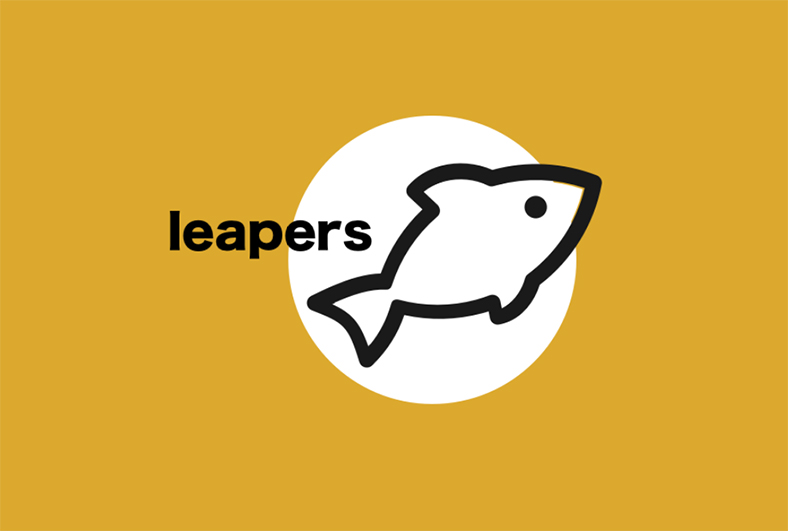Resources for freelance journalists: Leapers

Here to support freelancers and the self-employed, Leapers has members across 22 time zones working across many industries, including journalism. Its free slack channel is where to go to #askanything, find inspiring #brainfood and celebrate #littlewins with other freelance journalists. And for extra help where needed, there are ebooks to download as well as regular articles for looking after yourself while working for yourself.
In our interview on Leapers, founder Matthew Knight talks about the essential role of freelancers for the success of businesses across the globe and the importance of supporting such a hardworking community. And if you’re a freelancer who’d like to help with Leapers’ annual survey on Mental Health and Self-Employment, read on for more from Matthew on how to take part.
What inspired the launch of Leapers?
The importance of supporting mental health at work has never been more critical and while employers are getting better at looking after their employees, there are five million people in the UK who have to look after their own mental health at work: the self-employed.
While there are plenty of resources that help people figure out how to start, run and grow their own business, there’s still very little on how to look after the most important asset in any business – you!
Leapers exists to improve mental health for the self-employed: by creating supportive communities, content and signposting to resources and tools to work well; and by working with those who work with freelancers, independent workers and small businesses – to make sure they’re also doing their bit to support our collective wellbeing.
In the past three years, we’ve helped over 50,000 people to actively consider how they can work well and have encouraged increased conversation about mental health in self-employment.
What are the main challenges freelancers in your community are concerned about at the moment?
Right now, the biggest issue for many has been a lack of work or income drying up due to COVID-19. Financial concerns are often the most significant influence on mental health – late payment of invoices, projects being cancelled, tax changes, or falling between the gaps in the Government’s support for the self-employed are all common issues this year. In addition, people have unsurprisingly been feeling stressed around being isolated or quarantined, having to work from home, perhaps with family in close proximity or homeschooling duties, or not being able to see anyone else at all, and quite naturally a lack of boundary between ‘work’ and ‘home’.
This stress and anxiety often turns into a feeling of lack of motivation, lack of concentration, or manifests physically as low energy or lethargy, which in turn can make it even harder to work. It can be a vicious cycle if not kept in check!
As we look towards the end of 2020, there are concerns around further changes to support for the self-employed, or increases in tax and NI levied at the self-employed, and a general worry about recession and economic downturn.
But it’s not all bad news! Generally, our community is feeling positive that next year will be better, work-life balance is still better in self-employment than in a job, and on the whole, the self-employed report having more positive mental health than they did in employment. Having more flexibility of how, when, what and where you work, and ultimately more control over your own work is what most freelancers are looking for.
Quick piece of advice for those who may be struggling with freelance life?
Don’t struggle in silence – make sure you talk to someone about how you’re feeling. You might be working for yourself, but you’re not working by yourself: there are thousands of your fellow freelancers who are up for chatting, sharing their experience, and being part of your support team.
Spend some time finding a tribe that is right for you – whether that’s Leapers, or one of the other amazing support groups. Within journalism specifically, we’ve listed a number of support groups and communities here.
What advice would you give to commissioning editors looking to diversify their freelance connections?
Building a diverse network of freelancers takes time, so constantly invest in developing and growing that network – not just when you need it. Often when we call upon freelancers, there’s a deadline in place – we need to find someone quickly, and we lean upon our existing network of people we know and trust. But that leads to using the same people over and over.
Don’t fall into the mistake of only hiring someone who has experience writing on a topic or writing for recognised titles – everyone has to get their break at some point. Give new and different talent a chance. Give it a go on briefs where deadlines might not be as pressing, so you have time to feedback and provide constructive criticism. See it as a positive investment in the talent base, so when you are on a deadline, you’ve built up a network of brilliant people you know you can trust.
Tell us about Leapers’ Mental Health and Self-Employment survey and how freelance journalists reading this can take part.
The aim of the study is to better understand the challenges of self-employment, freelancing and running your own business, in order to build better awareness and support for independent workers and their wellbeing. Last year, over 500 responses from the freelance community helped Leapers to create content which supported over 35,000 people during the COVID-19 lockdown. This year, we’re hoping to hear from an even wider group, so we can truly ask as many people as possible, ‘how are you?’.
The survey will be open for the next four weeks – here’s the link: http://go.leapers.co/survey-2ZgX73n.
Join the Leapers community at Leapers.co and find Matthew Knight tweeting @thinkplaymake.
For getting relevant contributions for commissions you’re currently working on, send a request to UK PRs with the Journalist Enquiry Service (it’s free for journalists).